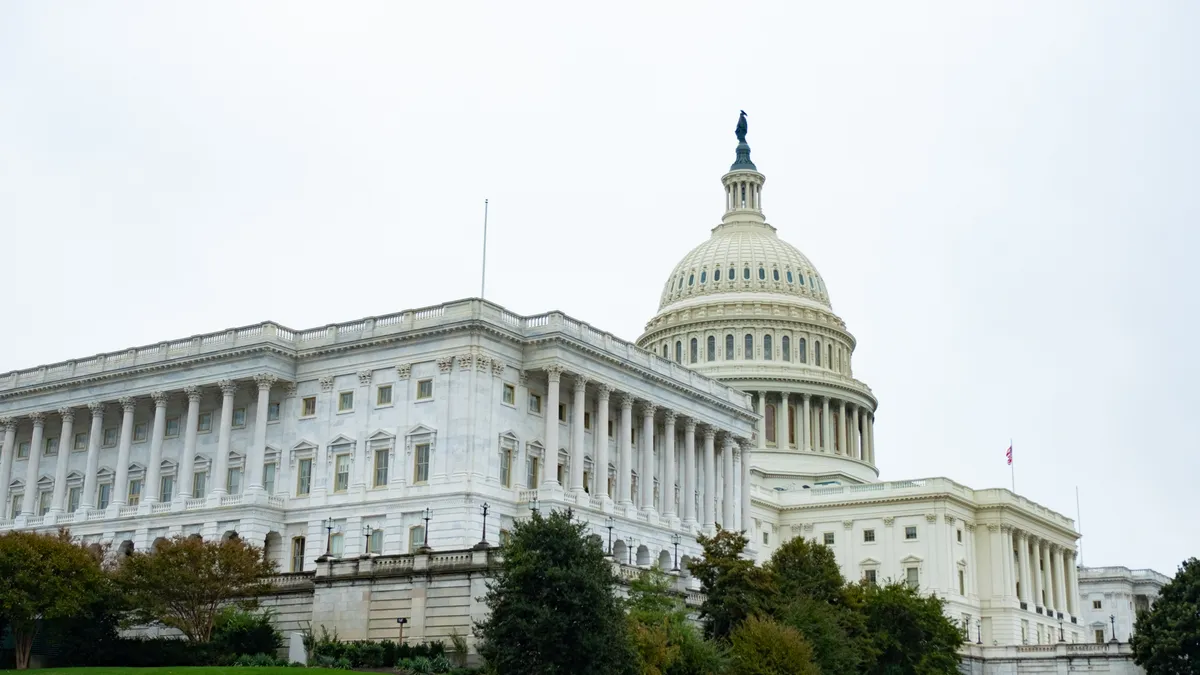Dive Brief:
- Democrats in the U.S. House of Representatives again introduced the Paycheck Fairness Act (H.R. 7), a bill that would make several changes aimed at closing the gender wage gap. The bill, introduced Jan. 28, includes all House Democrats and two Republicans as co-sponsors.
- Among other things, the bill would prohibit employers from relying on a worker’s salary history when setting pay. It also would require employers with 100 or more employees to submit pay data with demographic information to the U.S. Equal Employment Opportunity Commission (EEOC) — something EEOC has attempted in recent years with mixed success.
- The bill has been introduced in various forms several times since at least 1997.
Dive Insight:
President Joe Biden urged Congress to pass H.R. 7 in a Jan. 29 statement, saying it would "take critical steps to end pay discrimination and increase transparency" while also providing tools to hold employers accountable for engaging in systemic discrimination.
While the bill wouldn’t go as far as some state and local laws in prohibiting questions about salary history, it would prohibit employers from using that information to set a worker’s future pay; the U.S. Supreme Court last year declined to decide whether the Equal Pay Act allows employers to use such information to justify paying men and women differently for similar work.
The provision requiring pay data collection would mandate a recent EEOC effort. The commission collected such information under the EEO-1 report's Component 2 for 2017 and 2018 but later said it would not renew that request. Biden, however, recently named as EEOC chair Charlotte Burrows, a commissioner who previously supported pay data collection.
Additionally, the legislation would strengthen both nondiscrimination and anti-retaliation protections for workers. It notably prohibits retaliation against workers who discuss wages — an issue that the National Labor Relations Board also has deemed unlawful.
All Senate Democrats likewise support the bill, according to Sen. Patty Murray, D-Wash.














